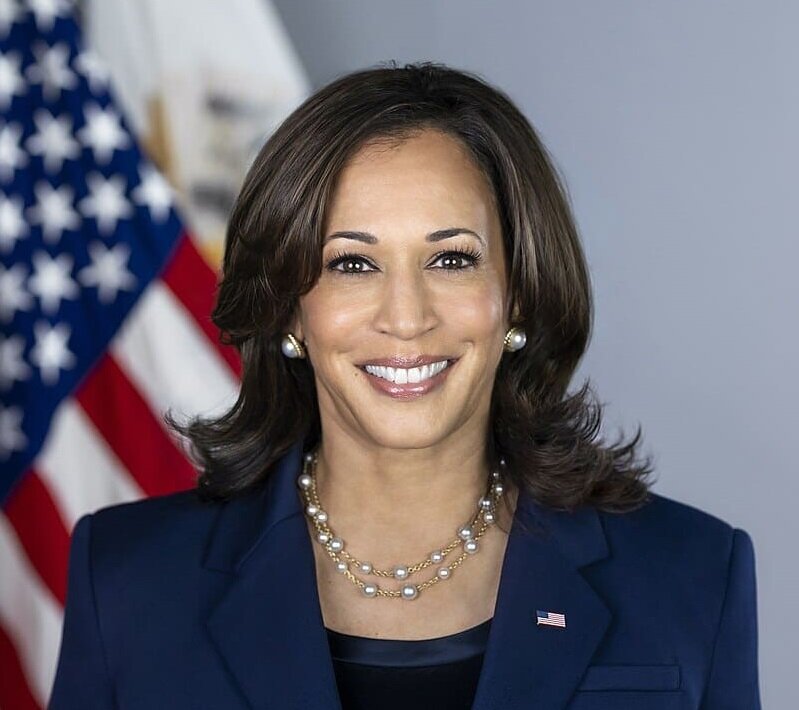Harris’s lost opportunity

It’s not an uncommon refrain from many Trump supporters, that while they might not approve of much of his behavior – you know, the lies, his bellicosity, his misogyny, the fact that he’s a convicted felon – they still rate him as the preferred candidate based on his economic policies. That assessment, however, is unjustified.
While the presidency derives immense power in terms of its bully pulpit, as far as the economy is concerned, the control by the presidency is actually quite limited. To be clear, when it comes to macroeconomic policy, we have two distinct policy arenas: monetary policy and fiscal policy. Monetary policy involves decisions relating to money and credit. Fiscal policy involves government spending and taxation.
Monetary policy is the domain of the Federal Reserve Board, which operates independently from both Congress and the Administration – a structure designed explicitly to insulate monetary policy decision makers from political influence. The Administration and Congress nominate and approve Board members, but subsequent to that, the Board operates autonomously. Trump has made noises about changing this structure, but his capacity to do so is highly questionable.
In contrast to monetary policy, fiscal policy falls squarely under the discretion of the Administration and Congress. Presidents can articulate a wish list of things to do, but without the support of Congress, new or revised spending and tax proposals will go unfulfilled. Put another way, Congress must generally pass legislation before the Administration can carry out that policy.
A critical exception to this rule applies for tariffs. In this instance, the president has the authority to unilaterally institute tariffs in cases where imports are deemed to be a threat to national security. It turns out that in the coming election, tariffs are a big deal. As is widely known, Trump is talking about imposing a 100 percent tariff on Chinese cars built in Mexico, a 60 percent tariff on goods imported from China, and as much as a 20 percent tariff on goods from every place else.
Recently, Trump spoke about tariffs before the Economic Club of New York, where it’s been widely reported that he linked tariffs to childcare in an answer to a question. Speaking about tariffs, Trump said, “We’re going to be taking in trillions of dollars, and as much as childcare is talked about as being expensive, it’s — relatively speaking — not very expensive, compared to the kind of numbers we’ll be taking in.” He subsequently made reference to the amount of money he anticipated collecting from these prospective tariffs during the presidential debate with Harris: “Other countries are going to finally, after 75 years, pay us back for all that we’ve done for the world, and the tariff will be substantial.”
Harris countered this statement by calling Trump’s plan a national sales tax, which is technically the case; but frankly, she missed the opportunity to make a bigger point. Most directly, she should have challenged Trump’s assertion that it would be “other countries” that would bear the cost of the tariffs. That’s patently untrue. China’s not going to be paying those “large numbers.” Rather, it’s American consumers and businesses who rely on inputs from abroad who would be faced with higher prices – estimated to cost as much as $3,900 for a typical American family.
Arguably, policy relating to tariffs may be the most direct and immediate way in which a president can influence fiscal policy. Wouldn’t we want someone charged with this responsibility to understand just how tariffs work and especially who pays them? If Trump really thinks that our foreign suppliers pay US imposed tariffs, he is grossly mistaken about a fundamental economic principle -- or else he’s cynically lying, telling the American people what he thinks they want to hear (or what he thinks he can get away with saying), even though he knows it to be a lie. (Reminiscent of Trump’s claim that Mexico would pay for the border wall.)
Harris let Trump off the hook by not offering him a needed economics lesson. She could have exposed Trump as being economically ignorant, and she let that opportunity pass.
Author
_XtraSmall.jpg)
Ira Kawaller
Derivatives Litigation Services, LLC
Ira Kawaller is the principal and founder of Derivatives Litigation Services.

















